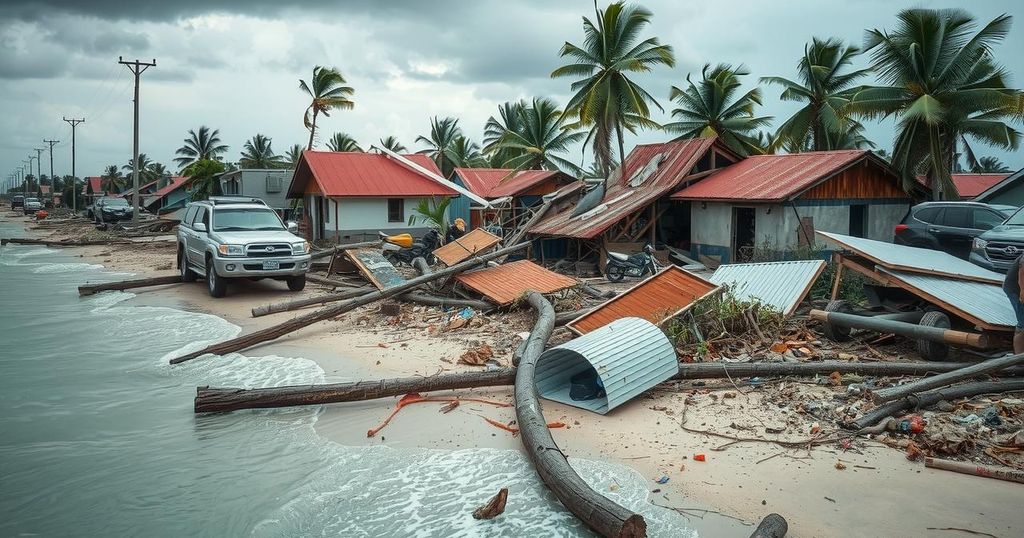Devastation from Cyclone Chido in Northern Mozambique: 120 Casualties and Widespread Destruction
Cyclone Chido has inflicted catastrophic damage in northern Mozambique, resulting in at least 120 fatalities and over 680,000 individuals affected. The cyclone made landfall on December 15, leading to widespread destruction of homes, schools, and health facilities, with significant adverse effects on local communities. Emergency shelters have been established, but calls for international aid to support those impacted continue to rise.
Cyclone Chido, a formidable tropical cyclone, has wreaked havoc in northern Mozambique, resulting in a devastating death toll of 120 individuals, with 868 others injured and over 680,000 affected. The Mozambique national disaster relief agency has reported substantial destruction across the northern regions, particularly in Cabo Delgado, Nampula, and Niassa, where severe rainfall and flooding have compounded the crisis. As a consequence, more than 123,000 families, totaling approximately 622,610 people, have found themselves vulnerable to displacement due to the inclement weather conditions.
The cyclone made landfall on December 15, unleashing torrential rains and fierce storms, which led to significant infrastructural damage. Over 150,000 homes were damaged or lost, in addition to casualties impacting 250 schools, 89 public buildings, and 52 healthcare facilities. Alarmingly, nearly 110,000 students have been affected by the educational disruptions caused by this disaster. To assist those displaced, the Mozambican government has set up two emergency shelters, currently housing 1,349 residents.
The National Institute for Disaster Risk Management and Reduction (INGD) has called attention to the severe ramifications Cyclone Chido has had on the education and health sectors, noting the urgent need for resilient planning to confront the challenges posed by climate change. Cyclone Chido began as a tropical depression over the southwestern Indian Ocean, impacting the French overseas territory of Mayotte before wreaking further destruction in Mozambique. As authorities, alongside international humanitarian organizations, appeal for assistance, the overall picture remains grim as communities grapple with the immense aftermath of this cyclone.
Cyclone Chido represents another stark reminder of the increasing severity of weather patterns attributable to climate change. The cyclone originated over the southwestern Indian Ocean on December 5 and developed into a tropical storm capable of inflicting widespread damage. Mozambique is particularly vulnerable to tropical cyclones due to its geographic location and climatic conditions, leading to frequent calls for improved disaster preparedness and resilient infrastructure to safeguard communities against future weather-related disasters.
The aftermath of Cyclone Chido has brought severe humanitarian challenges to northern Mozambique, emphasizing the need for immediate and long-term support for affected communities. With a significant number of casualties and extensive destruction of educational and health facilities, the call for assistance remains urgent. As Mozambique faces the daunting task of recovery, the lessons learned from this cyclone will be pivotal in strengthening the nation’s resilience against future climatic events.
Original Source: english.mathrubhumi.com




Post Comment